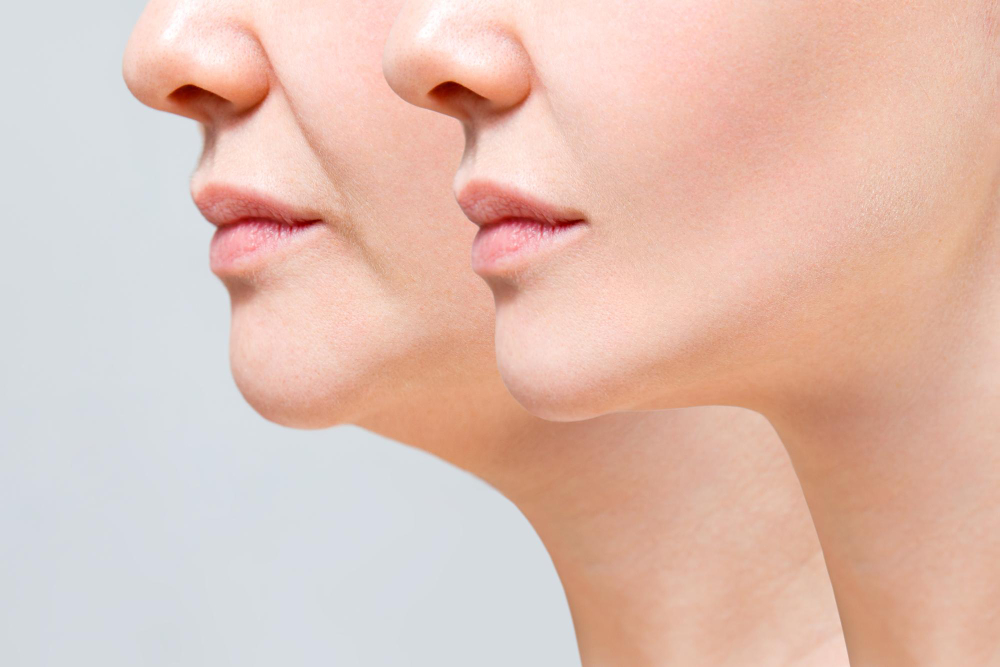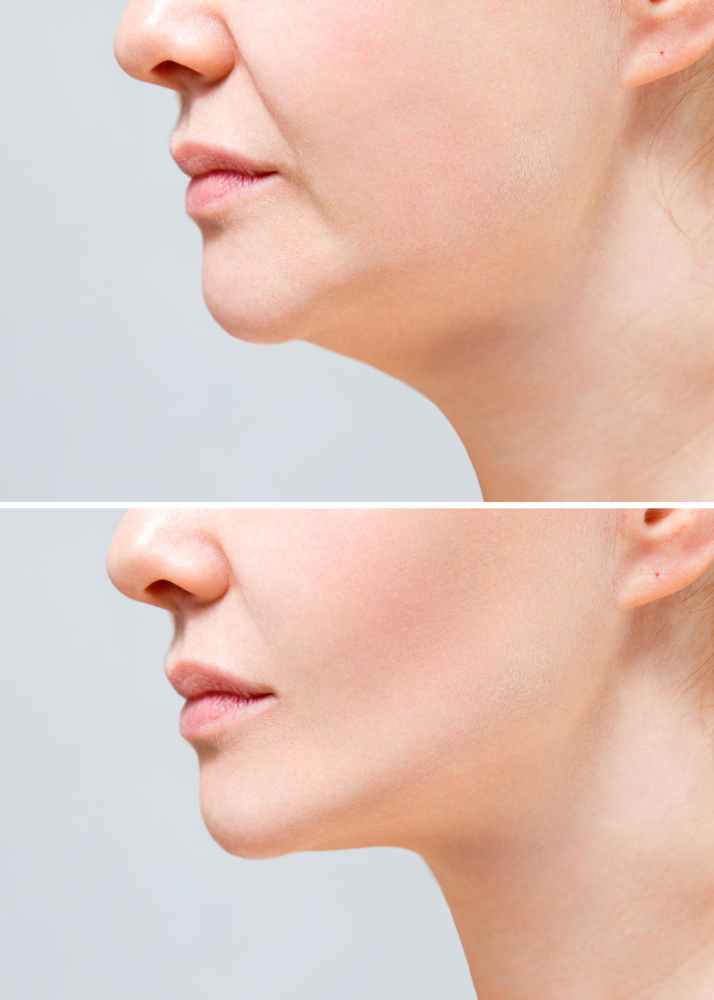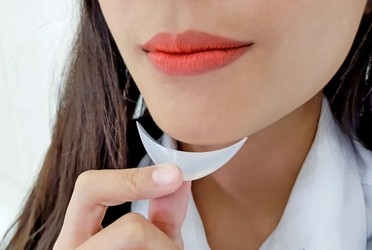Chin Augmentation
Chin augmentation involves improving the shape of the chin by placing an implant directly on the chin bone. This procedure is commonly done to enhance a receding chin.

The objective of chin augmentation is to restore facial balance and can be used to define an underdeveloped chin or make it more prominent. Interestingly, the size of the chin is related to the size of the nose. If the chin is small, a large nose may appear more prominent, and vice versa. It is common for chin augmentation to be combined with a rhinoplasty (nose job) procedure. Chin augmentation can also be performed during a neck or facelift to enhance the definition of the jawline.
Who gets chin implants?
If you are worried about having a small or sunken chin, you might want to think about getting chin implants. A sunken chin refers to the chin being not prominent enough and not sticking out as much as it should from the rest of your face. When viewed from the side, your chin may not match the proportions of your forehead, nose, and other facial characteristics.
Individuals who have experienced facial damage like a broken face or had a tumor removed might find it beneficial to think about getting a chin implant.
AM I SUITABLE FOR CHIN AUGMENTATION?
Doctors will have a thorough discussion with you before any surgical procedure to assess if you are a suitable candidate. They will address your worries, objectives, and the anticipated outcomes, and will also review your medical background to ensure that you are not only physically eligible for surgery, but that you are mentally sound enough to make an informed choice about going ahead with the procedure.
Ideal Candidate for Chin Augmentation
Qualities that make an individual a promising candidate for chin augmentation include:
- If you have a chin that is set back or lacks definition, it can impact the overall harmony of your face.
- Want a more pronounced and well-defined jawline and neckline
- Experience excess fat or a visible fold of skin beneath the chin.
- Have a satisfactory level of physical fitness and maintain reasonable expectations about the outcome of the surgery.
- Be a non-smoker

What steps should I take to get ready for chin implant surgery?
Your doctor will provide you with guidelines regarding the preparation for surgery to implant a chin. This may involve undergoing lab tests and a physical examination to ensure your overall well-being. If you are a smoker, it is advised to cease smoking for a few weeks leading up to the procedure.
Before undergoing a chin implant surgery, your healthcare provider may request that you discontinue certain medications. It is important to inform them about any medications you are currently taking, such as aspirin, anti-inflammatory drugs, or herbal supplements. Additionally, they may advise you to begin taking antibiotics prior to the surgery in order to minimize the chances of infection.
Before your surgery, your healthcare provider may capture images of your chin and side profile. These photographs enable your surgeon to strategically plan your procedure and make comparisons between the outcomes before and after the surgery.
Procedure
The chin implant procedure can be completed in less than an hour and can be performed with either local anesthesia and sedation or general anesthesia, depending on the patient and doctor preferences. To avoid visible scarring, an incision is made inside the mouth during the procedure. A pocket is created, and the implant is then placed in front of the jawbone and properly positioned. Sutures are used to secure the implant in place. However, if making an incision inside the mouth is not feasible for some patients, an alternative incision is made under the chin to keep the scars from being visible. After the procedure, patients are able to go home the same day.

What to Expect After Chin Surgery
- Right after the operation, the surgeon typically puts on a bandage that will stay on for a couple of days. The individual may feel some soreness, and the surgeon will recommend medications to alleviate any pain or discomfort after the surgery.
- After undergoing chin surgery, the ability to chew may be restricted initially, and individuals may have to consume only liquids and soft foods for a few days afterwards. Following the procedure, many patients might experience a sensation of tightness and tension, but this typically diminishes within a week.
- After about six weeks, the majority of swelling will have subsided and the individual will begin to notice the outcomes of the procedure. The surgeon might suggest refraining from strenuous activities during the initial weeks following the operation. Regular activities can be resumed after around 10 days.
Benefits of Chin Augmentation Surgery

Chin Augmentation, alternatively referred to as mentoplasty, offers a multitude of advantages and notable characteristics. It possesses the ability to greatly enhance your facial features, by providing several benefits such as:
- Making your chin stand out more
- Enhancing the definition of the lower region of your face.
- is important for aesthetic reasons and maintaining proper posture.
- Moving your chin forward
- Altering the form of your chin to increase its width, length, and curvature.
- Creating the illusion of a smaller nose in comparison.
- Improving the overall appearance of your face, based on commonly admired features
- Helping your lips look better together
- Providing a distinct and prominent contour to the entire jaw and chin, which forms a defined and visible boundary at the bottom of your face.
- It is a simple procedure that requires minimal recovery time, is usually performed with local anesthesia, and does not require a hospital stay.
Having Chin Augmentation in Turkey?
The patient must carefully search for an appropriate service provider, have information, and ask about the surgeon and his experience. And also, checking examples of his previous operations.
Accordingly, we encourage you to contact the Health & Beauty to obtain all information and details, and to ensure that you have your operation done by the hands of the most skilled doctors working in this specialty.

